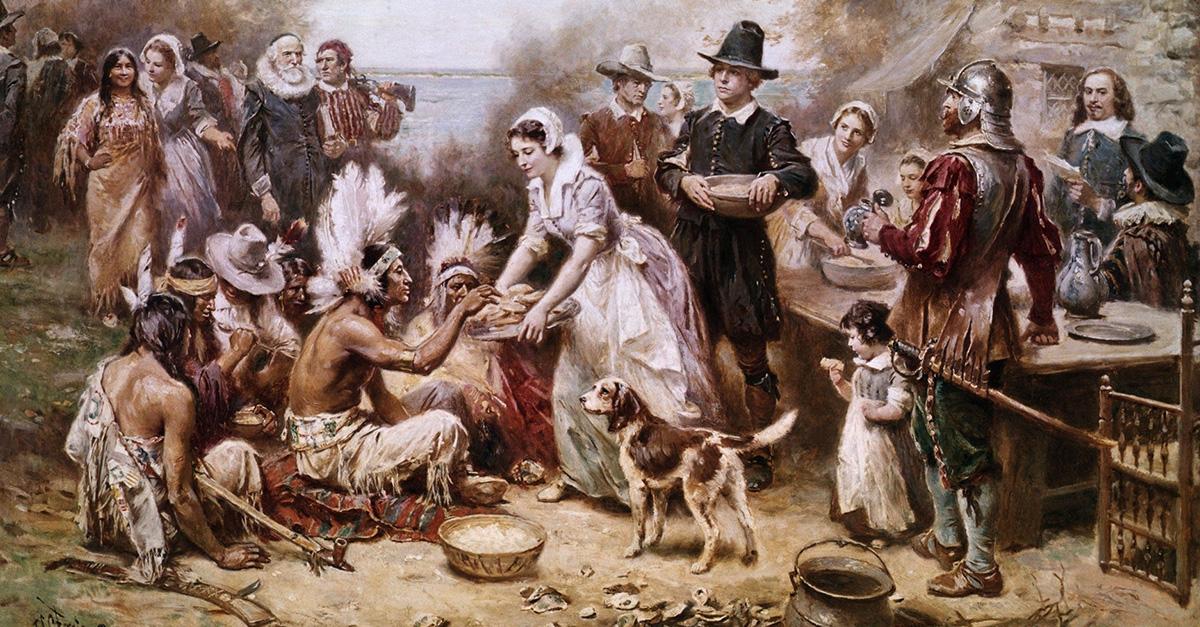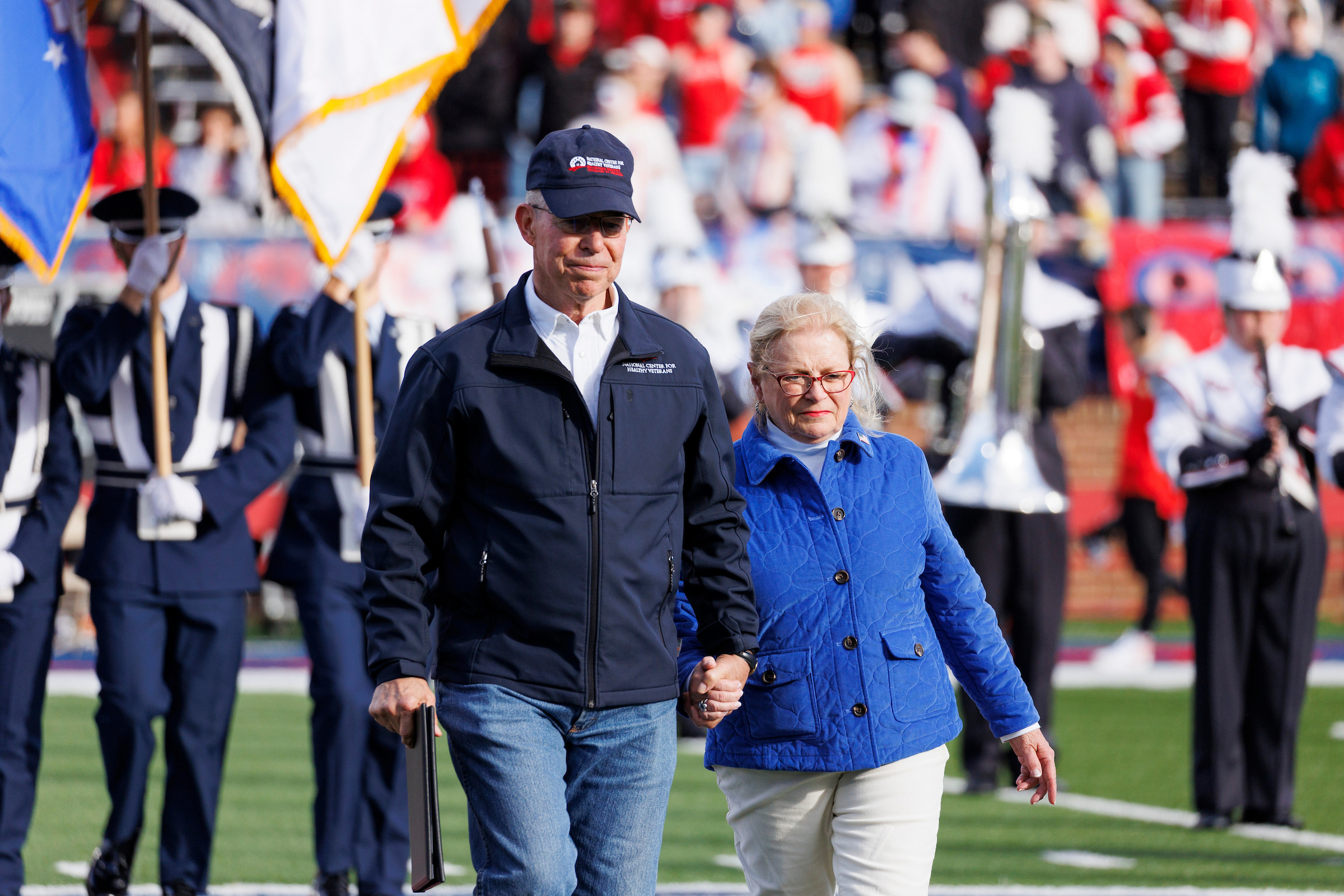


Get a free copy of Parental Rights & Education when you subscribe to our newsletter!

Understanding these historical aspects provides a broader perspective on the significance and true meaning behind this beloved holiday.
Thanksgiving, a widely celebrated holiday in the United States and Canada, has deep historical and Christian roots that trace back to early colonial times. While the modern celebration involves feasting, family gatherings, and expressions of gratitude, understanding the historical origins of Thanksgiving provides valuable insight into its role in American life over the centuries.
As you prepare to celebrate Thanksgiving this year, here are three things you should know about its history.
The commonly accepted historical narrative of the first Thanksgiving involves the Pilgrims, English Separatists seeking religious freedom, and the Wampanoag, a Native American tribe. In 1620, the Pilgrims arrived on the Mayflower and established the Plymouth Colony in present-day Massachusetts. Facing a harsh winter and unfamiliar conditions, the Pilgrims struggled to survive.
William Bradford played a crucial role in the early years of the Plymouth Colony. He was elected as the governor of the Plymouth Colony and served in that capacity for much of the time between 1621 and 1656. Bradford was known for his leadership, particularly during the challenging early years when the Pilgrims faced harsh conditions and struggled for survival. It was during his governorship that the Pilgrims, in 1621, celebrated what is often considered the first Thanksgiving with the assistance and participation of the Native Americans, particularly the Wampanoag tribe led by Chief Massasoit.
In the fall of 1621, the Wampanoag assisted the Pilgrims by teaching them essential survival skills, such as farming and fishing. In gratitude for the Native Americans’ help and a successful harvest, the Pilgrims and Wampanoag came together for a feast, setting the precedent and standard for today’s celebration.
While the Pilgrims’ feast in 1621 is often associated with the origins of Thanksgiving, it wasn’t until the 19th century that Thanksgiving became a nationally recognized holiday. Sarah Josepha Hale, a prominent American writer and editor, campaigned for the establishment of a national Thanksgiving Day. Her efforts were successful when President Abraham Lincoln issued a proclamation in 1863, declaring Thanksgiving a national holiday to be celebrated on the last Thursday of November.
Over the years, subsequent presidents adjusted the date of Thanksgiving. It wasn’t until 1941, when President Franklin D. Roosevelt signed a bill officially designating the fourth Thursday of November as Thanksgiving Day, that a consistent date was established. Today, Thanksgiving is a federal holiday that fosters a tradition of gratitude and familial togetherness.
Initially, Thanksgiving had clear religious overtones and was viewed as a day of giving thanks to the one true Christian God for a bountiful harvest and His blessings on mankind.
While the first celebration was most likely in 1621, Governor Bradford issued his first official proclamation in 1623. Here is the declaration:
“Inasmuch as the great Father has given us this year an abundant harvest of Indian corn, wheat, peas, beans, squashes, and garden vegetables, and has made the forests to abound with game and the sea with fish and clams, and inasmuch as He has protected us from the ravages of the savages, has spared us from pestilence and disease, has granted us freedom to worship God according to the dictates of our own conscience.
Now I, your magistrate, do proclaim that all ye Pilgrims, with your wives and ye little ones, do gather at ye meeting house, on ye hill, between the hours of 9 and 12 in the daytime, on Thursday, November 29th, of the year of our Lord one thousand six hundred and twenty three and the third year since ye Pilgrims landed on ye Pilgrim Rock, there to listen to ye pastor and render thanksgiving to ye Almighty God for all His blessings.”
Over time, the holiday has, in many ways, evolved into a more general, secular celebration centered around family, food, and gratitude. However, the deep Christian roots of Thanksgiving are undeniable. It is truly a Christian holiday and should be celebrated as such.
The history of Thanksgiving is a complex tapestry woven with threads of cooperation between the Pilgrims and Native Americans, the national recognition of a day of thanks, and the cultural evolution of the holiday from an explicitly Christian celebration into the modern and secular tradition we see today. Understanding these historical aspects provides a broader perspective on the significance and meaning behind this beloved holiday.
If you like this article and other content that helps you apply a biblical worldview to today’s politics and culture, consider making a donation here.

